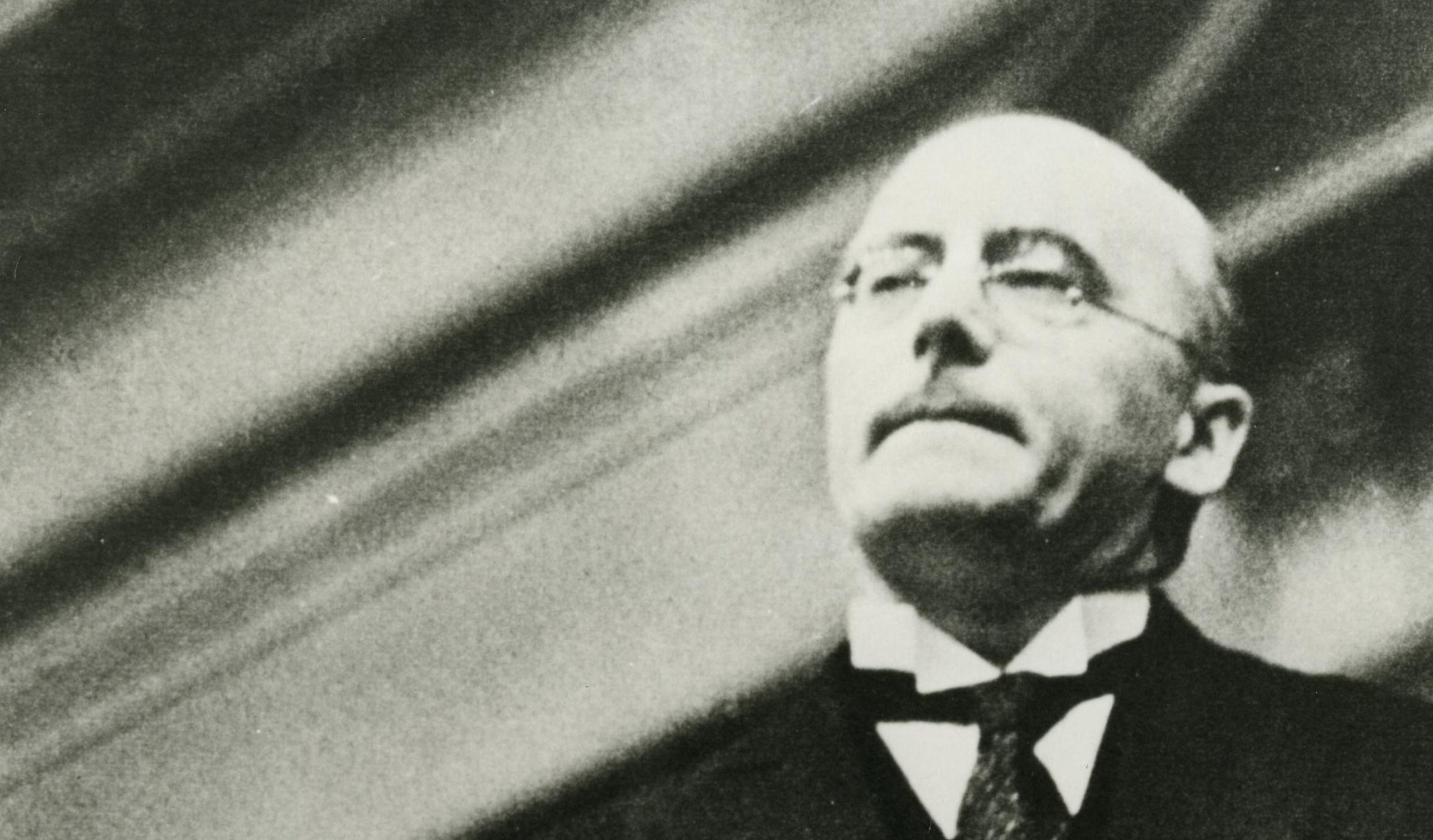One of those who tried hard to prevent Hitler from coming to power: Who is Heinrich Brüning?
He was exiled abroad by the National Socialist Party. He went to the USA and became a professor at Baltimore Catholic University. He was not interested in politics until the end of his life.

(1885-1970) German statesman. My National Socialists worked to prevent him from coming to power. He was born on 26 November 1885 in Münster (today the FAC) and died on 30 March 1970 in Norwich, Vermont, USA. He was the son of a peasant family from Westfalen. After studying law, philosophy, and history, he specialized in finance. After working as a manager in the Christian Workers' Unions for a while, he was elected to the Reichstag (German assembly) in 1924 as the representative of the Catholic Center Party.
Heinrich Aloysius Maria Elisabeth Brüning (26 November 1885 – 30 March 1970) was a German Centre Party politician and academic, who served as the chancellor of Germany during the Weimar Republic from 1930 to 1932.
He became president of the Catholic Center Party in 1929. When the coalition government headed by Social Democrat Hermann Müller dissolved in early 1930, he formed a minority government in March 1930. He prepared a program to save Germany, which fell into economic depression as a result of the Great World Depression.
This program, which includes increasing taxes, cutting government spending, imposing high customs duties on imported agricultural products, and cutting wages and unemployment insurance, was not approved as a result of the opposition of all parties in the parliament. Thereupon, Brüning started to implement his program by using the authority granted to the head of state by the constitution for extraordinary conditions. He dissolved the parliament in July 1930 against the intense opposition in the parliament.
While hoping that the votes of the opposition would decrease in the renewed elections in September 1930, the National Socialist Party entered the parliament with more deputies than before. Faced with this result, the Social Democrats decided to support the Brüning government. When Foreign Minister Julius Curtius left the government in October 1931, Heinrich Brüning took over as foreign minister. He worked for the election of Hindenburg in the elections held in March 1932.
Brüning developed a proposal for equal arming of European countries when Hindenburg was re-elected president. After this proposal, which was not adopted by foreign countries, France opposed the general disarmament proposal. Soon after, his proposal to distribute the lands of bankrupt farmers east of the Elbe to the people led the Hindenburg, who had lands to the east, to accuse him of Bolshevikism.
Hindenburg, under the influence of his aides, forced Brüning to resign and appointed Franz von Papen, also from the Catholic Center Party, as prime minister instead. Brüning was exiled abroad in 1933 after the National Socialist Party came to power and shut down all other parties. He went to the USA and became a professor at Baltimore Catholic University. He returned to Germany for a time in 1952. He was not interested in politics until the end of his life.
